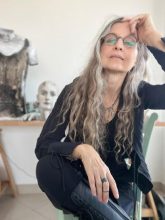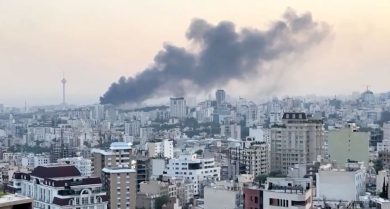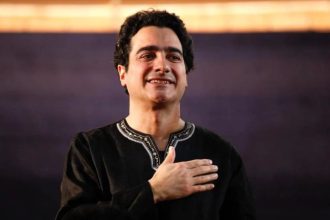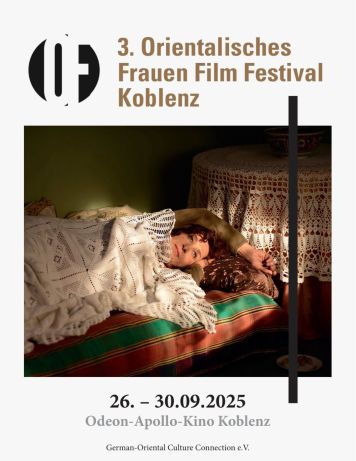
By Pooneh Nedai,
Editor in chief of Shokaran magazine – Iran
TEHRAN: In an era marked by growing polarization, xenophobia, and the dehumanizing effects of war and hate, the need for cultural exchange and mutual understanding has never been more pressing. Art, particularly cinema, possesses a unique ability to connect diverse experiences and ignite empathy between seemingly distant worlds.
The Third Oriental Women’s Film Festival in Koblenz, held from September 26 to 30, 2025, stands as a compelling example of how film can function as a cultural bridge—one that particularly amplifies the voices of women from the Middle East and beyond.
A Platform for Dialogue and Diversity
Organized by the German-Oriental Culture Connection, the festival is dedicated to showcasing films by and about women from Oriental societies. It not only gives a platform to underrepresented voices but also challenges prevailing stereotypes, particularly about the roles of women in these cultures.
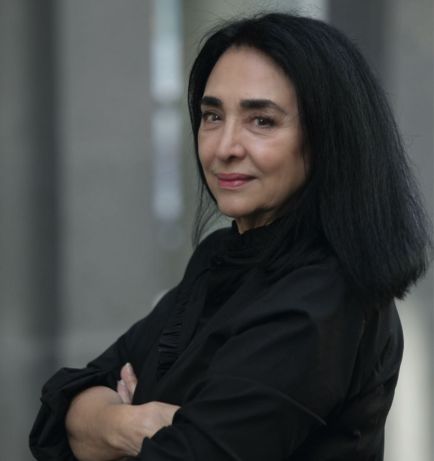
According to Firouzeh Görgen-Ossouli, the festival’s director, the objective is to “build bridges through art” and foster dialogue in times when understanding “the other” is becoming increasingly difficult.
The festival focuses on the central role women play within their families and societies as educators, caretakers, and often as silent leaders. Their influence is subtle but powerful, and their stories are frequently overlooked, especially in public discourse outside their home countries. By bringing these narratives to the screen, the festival challenges Western misconceptions and facilitates cross-cultural dialogue.
Highlighting Artistic Excellence
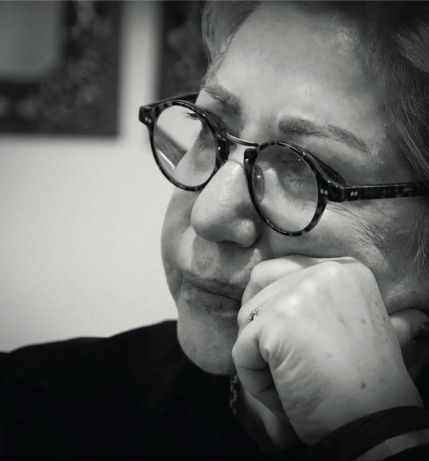
The lineup features critically acclaimed films and internationally recognized directors and actors. Among them is Rakhshan Bani-Etemad, one of Iran’s most prominent filmmakers, whose work blends social realism with poignant emotional depth.
Her film The Blue Veiled (1995), a story about an unlikely romance in rural Iran, highlights the tension between love and social expectations.
Bani-Etemad’s legacy as a documentarian and feature film director reflects her commitment to portraying the complexities of Iranian society, especially through the lens of women’s experiences.
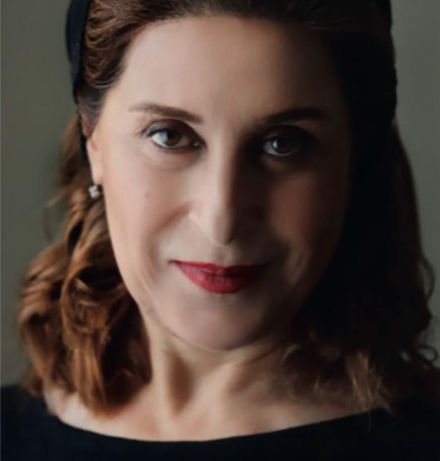
Another standout figure is Fatemeh Motamed-Arya, a veteran Iranian actress celebrated for her powerful performances and human rights advocacy. Despite facing political restrictions, including travel bans, Motamed-Arya has remained a formidable presence in Iranian cinema.
She stars in several festival entries, including African Violet (2019) and No Choice (2020), both of which explore themes of sacrifice, female agency, and the boundaries of social acceptance.
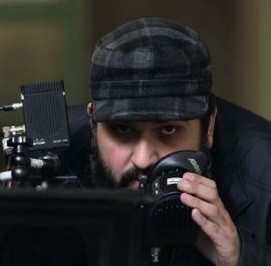
Reza Dormishian, known for his bold and politically charged narratives, contributes two films: Lantouri and No Choice. The former tells the harrowing story of a woman scarred by an acid attack, shedding light on both male obsession and the limitations of justice. The latter delves into reproductive rights and medical ethics through the lives of three Iranian women from vastly different backgrounds.
Expanding Geographical and Gender Horizons
The festival is not confined to Iranian cinema. It also includes Afghan films such as Hava, Maryam, Ayesha by Sahraa Karimi and Maydegol by Sarvnaz Alambeigi. These films present Afghan women navigating patriarchal pressures, political instability, and the complexities of identity in both local and diasporic contexts.
Maydegol, in particular, tells the story of a young Afghan refugee in Iran who aspires to become a Muay Thai fighter—a dream symbolizing empowerment in the face of adversity.
Another notable entry is Son-Mother by Mahnaz Mohammadi, which portrays the economic struggles and emotional dilemmas of a single mother forced to choose between her son’s well-being and social survival. The film was honored at multiple international festivals, highlighting its global resonance.
The Power of Curated Cultural Exchange
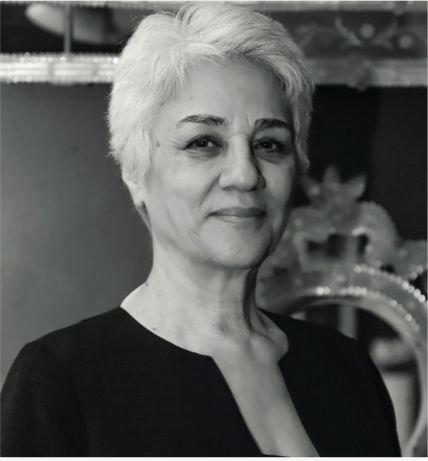
At the heart of the festival’s success is its artistic direction. Farah Ossouli, an accomplished visual artist and the festival’s curator in Iran, brings a multidisciplinary perspective to the programming. Her background in Persian miniature painting and narrative visual art enriches the festival’s aesthetic and thematic cohesion. Ossouli’s involvement ensures that the films selected are not only artistically compelling but also socially and politically relevant.
Community, Education, and Empowerment
Beyond film screenings, the festival includes panels, interviews, and Q&A sessions with artists, translated live for the audience. These interactions allow for deeper engagement and understanding, especially in a city like Koblenz with a growing multicultural population. The event is supported by a wide network of cultural and political organizations, from the Ministry for Family, Women, Culture and Integration RLP to local women’s advocacy groups.
The Third Oriental Women’s Film Festival in Koblenz provides a rare platform for underrepresented voices, fosters mutual understanding, and promotes a nuanced image of women in the Orient.
By creating space for these stories, the festival invites Western audiences to rethink their assumptions and connect on a human level. In a world where borders are tightening and fear is being politicized, such festivals remind us that empathy remains one of the most powerful tools for change.

